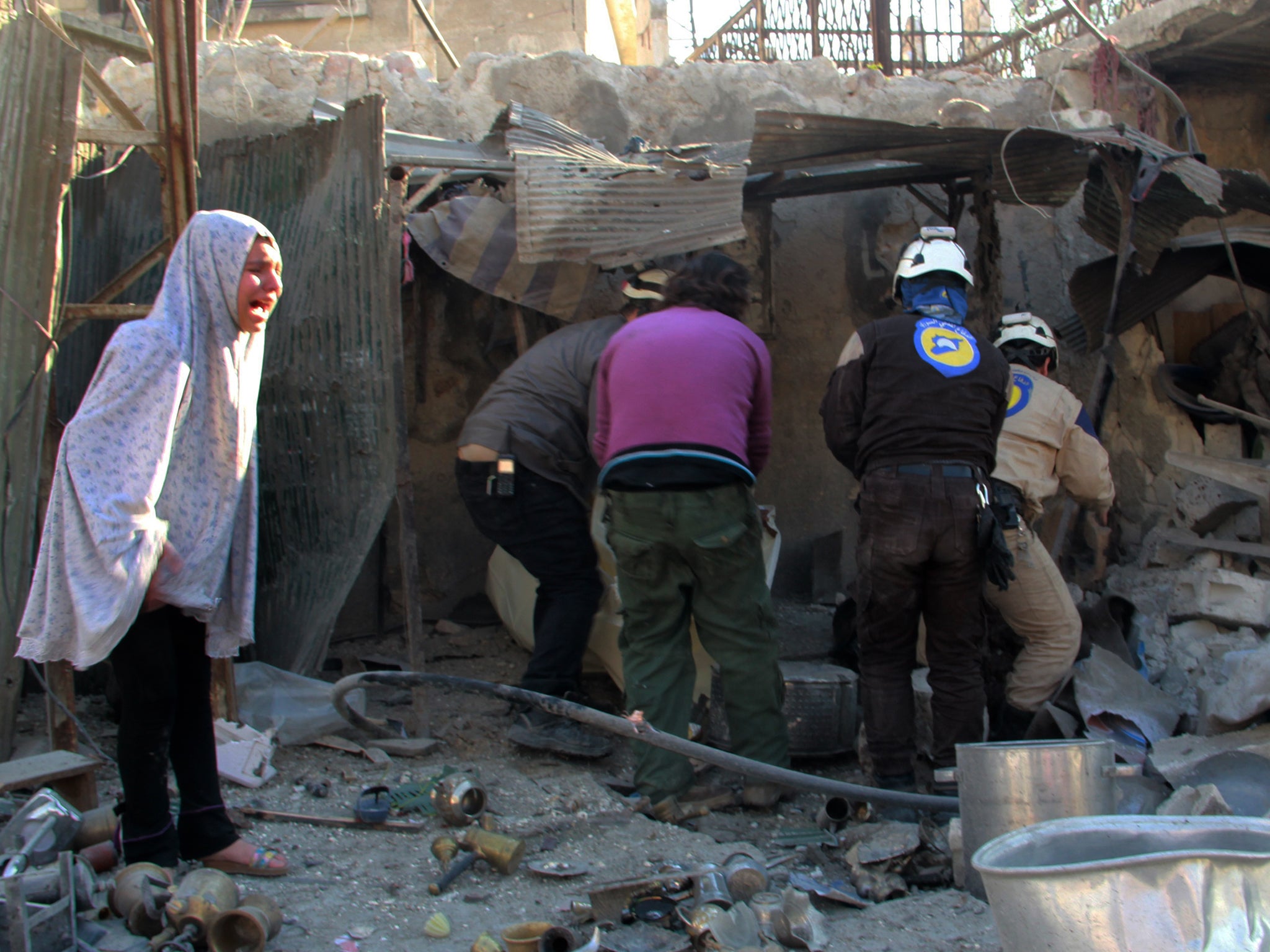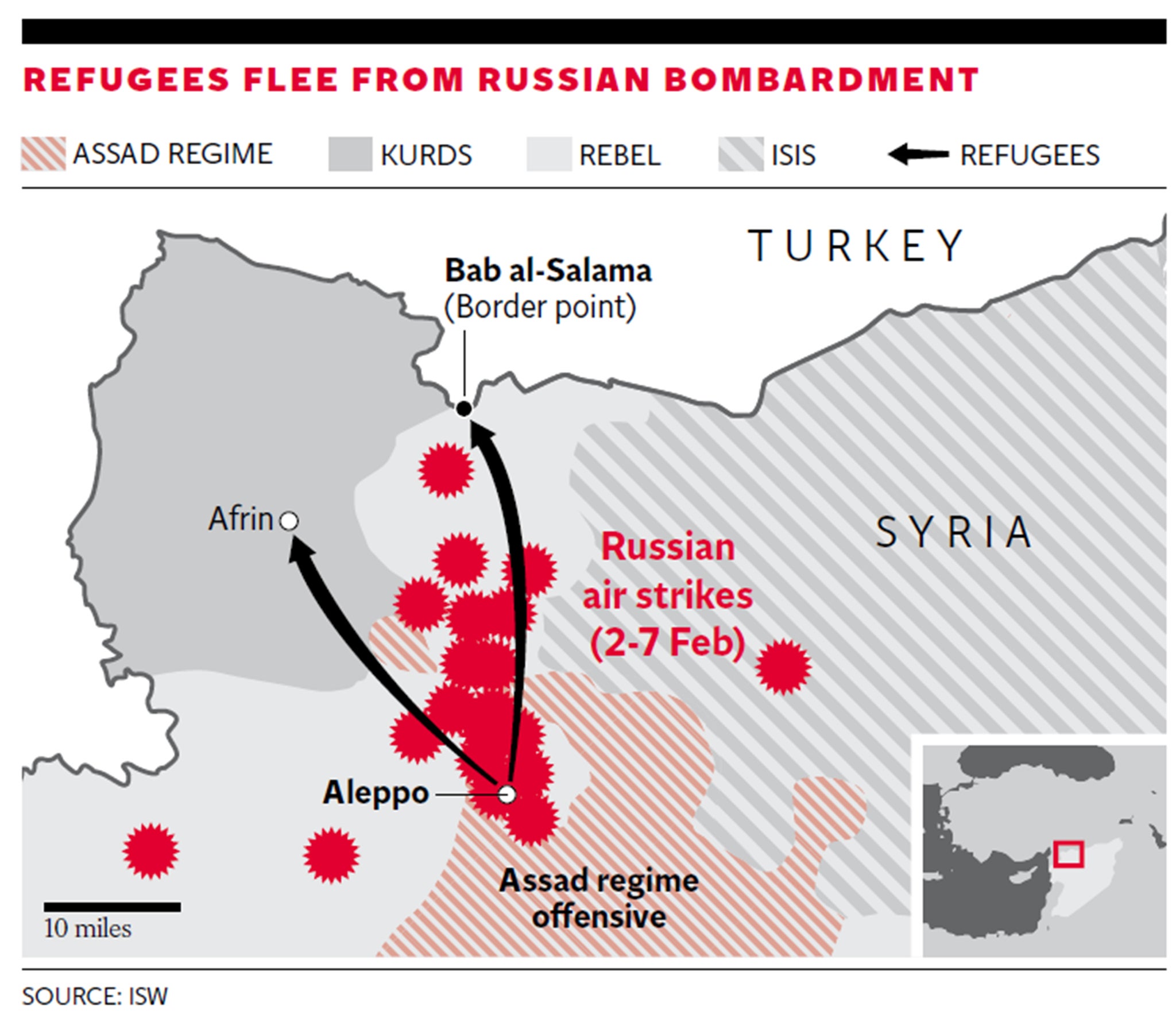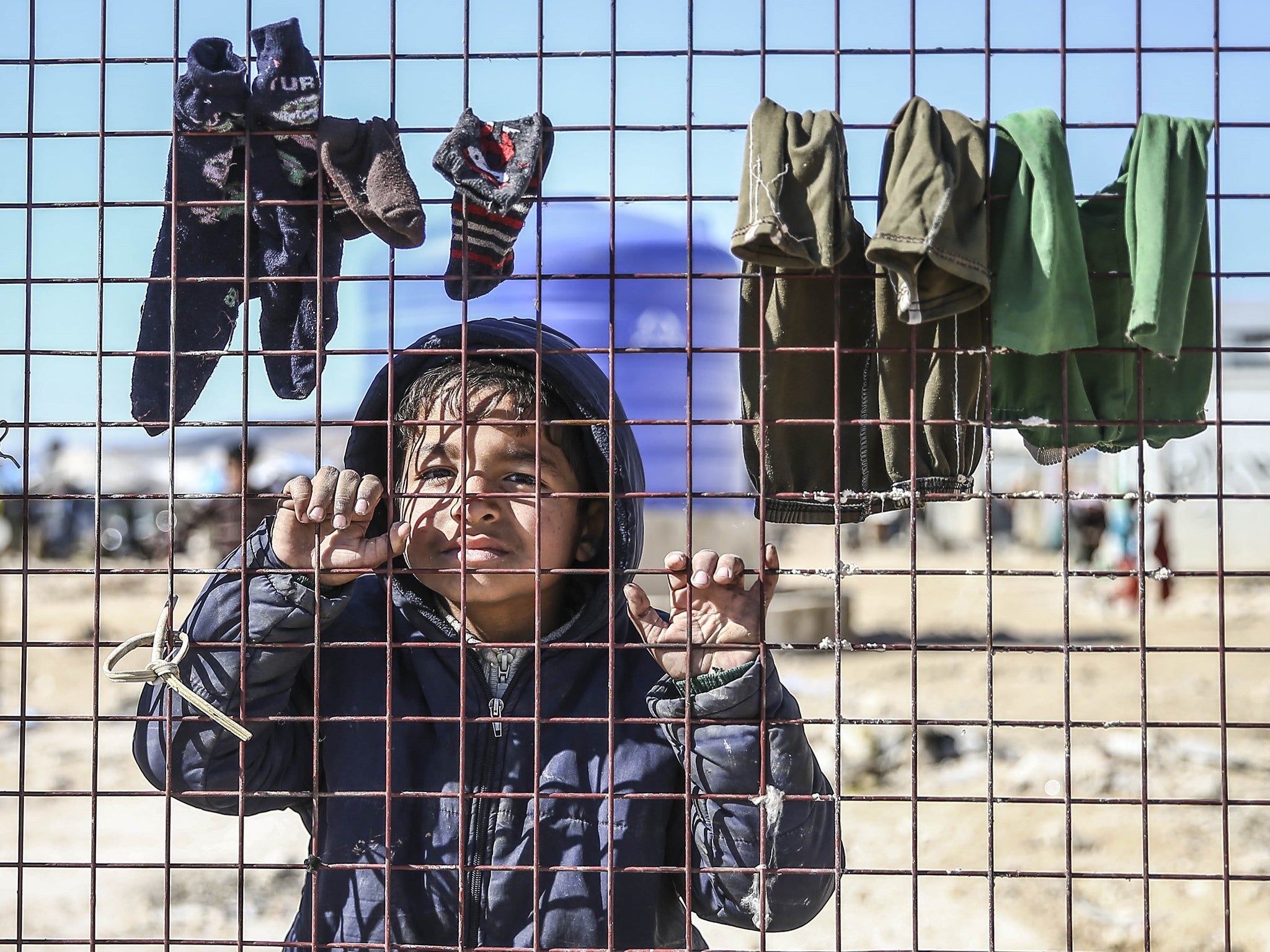Syrian civil war: Mass starvation fears in Aleppo amid claims that Russian bombs killed children
Despite much international outcry, Russians deny any wrongdoing, but the evidence to the contrary is growing

Your support helps us to tell the story
From reproductive rights to climate change to Big Tech, The Independent is on the ground when the story is developing. Whether it's investigating the financials of Elon Musk's pro-Trump PAC or producing our latest documentary, 'The A Word', which shines a light on the American women fighting for reproductive rights, we know how important it is to parse out the facts from the messaging.
At such a critical moment in US history, we need reporters on the ground. Your donation allows us to keep sending journalists to speak to both sides of the story.
The Independent is trusted by Americans across the entire political spectrum. And unlike many other quality news outlets, we choose not to lock Americans out of our reporting and analysis with paywalls. We believe quality journalism should be available to everyone, paid for by those who can afford it.
Your support makes all the difference.Horrifying images of Syrian children wounded by suspected Russian air strikes have emerged, fuelling growing international anger at Moscow’s pounding of civilians in apparent defiance of international law.
In a district of Aleppo called Paradise, a video showed doctors in a field hospital working frantically to save the life of a boy, no more than 11 years old, with a gaping shrapnel wound. They pumped his chest to restart his heart, but his fixed eyes suggested it was a hopeless cause. On the other side of the room, a boy covered in dust from the rubble of collapsed buildings writhed in pain and called out to God.
The footage, released by the Aleppo Media Centre activist network, could not be independently verified. But Dr Osama Abo el-Ezz, a general surgeon and co-ordinator for the Syrian American Medical Association in the city, said that two Russian attacks on the districts of Paradise (al-Fardous in Arabic) and al-Sukkari had killed 11 people and wounded at least 13.
The attacks came as the charity Médecins Sans Frontières said that one of its partner hospitals in the southern province of Deraa was hit by air strikes on 5 February, killing three people and wounding six others, in a “flagrant violation of international laws”.
The United Nations has warned that hundreds of thousands of civilians could starve if, as feared, forces loyal to the Syrian government encircle Aleppo and submit the rebel-held east to a siege. It said that a huge new wave of refugees would be forced to flee from a Russian-backed assault.
Donald Tusk, President of the European Council, added his voice to the chorus of condemnation of Russia, which was accused this week by Human Rights Watch of using banned cluster bombs. He warned that Moscow’s actions were “making an already very bad situation even worse” by forcing thousands of people towards Turkey and Europe.
Russia maintains that its air strikes do not kill civilians. Responding to Angela Merkel, the German Chancellor, who said that she was “not just appalled but horrified” by Russian attacks on civilians, Kremlin spokesman Dmitry Peskov said: “Despite a huge number of such statements, no one up to now has presented a single [piece of] credible evidence as proof of these words.”

In the past week, Syrian government forces, supported by Russian air strikes, Iranian troops and Hezbollah, have launched a major offensive in the rebel-held area to the north of Aleppo, where al-Qaeda-linked Jabhat al-Nusra has fought alongside more moderate, Western-backed rebel groups. They have severed the main rebel supply route to the city, which was also the primary aid route. The gains have shifted the momentum in a five-year civil war that has claimed at least 250,000 lives and forced 11 million people from their homes. They also triggered the collapse of the first UN-backed peace talks in two years after the opposition refused to negotiate while under heavy attack.
In an interview with Reuters, an aide to President Bashar al-Assad said that there would be no let-up in the campaign. Bouthaina Shaaban said Damascus aims to secure the border with Turkey and recapture the whole of Aleppo and the surrounding villages to “liberate” them from “the crimes of terrorism”.
As well as causing spiralling civilian casualties, the encroachment towards the Turkish border has unnerved Ankara, which is staunchly opposed to the Assad government. It has prompted fears of a new influx of arrivals to the EU on top of more than one million migrants and refugees who came to its shores last year. The UN called on Turkey, already home to 2.5 million Syrians, to open its gates to tens of thousands who have amassed near the border after fleeing the attacks. Ankara’s position last night appeared confused.
While some ministers insisted it was better to keep Syrians on their side of the border, Foreign Minister Mevlut Cavusoglu said Turkey was in fact admitting refugees in a “controlled fashion” and had let in 10,000 of the 50,000 people to have reached the border in the latest wave.
Turkey has insisted that the needs of those who have fled are being met. The Turkish charity IHH, which is close to the government, is constructing tents and has set up a mobile kitchen serving hot food to 30,000 people per day.

But an aid worker from Islamic Relief, a UK-based NGO that is providing aid in northern Aleppo, told The Independent that conditions for refugees were dire.
The staffer, who asked not to be named to protect his safety inside Syria, said: “You can’t say that these are camps. They are really very primitive, very disorganised. People are living under trees, putting up plastic sheets. The situation is very critical.”
Nato said that it would treat requests for help with the refugee crisis “very seriously” after Turkey called for assistance.
Germany and Turkey made the controversial proposal that the alliance should become involved in stemming Europe’s refugee influx after crisis talks in Ankara between Ms Merkel and Turkish leaders on 8 February.
New figures released by the International Organisation for Migration showed that 10 times as many refugees and migrants (over 76,000) arrived in Europe by sea in the first six weeks of 2016, compared to the same period the previous year. Ms Merkel said that this week’s meeting of Nato defence ministers should explore the extent to which the alliance could “be helpful in surveillance at sea” – a proposal that was criticised in Germany, with questions over the legal basis for such a move.
But Jens Stoltenberg, Nato’s Secretary General, responded positively to the suggestion: “I think we will take very seriously the request from Turkey and other allies to look into what Nato can do to help them cope and deal with the crisis,” he said.
Nato defence ministers, who meet in Brussels on 10 February, will tomorrow also discuss a Saudi offer to send troops to Syria as part of the fight against Isis.
The US Defence Secretary, Ashton Carter, will head a team of Nato defence ministers who will be meeting their Saudi counterpart as well as ministers from the UAE and Turkey.
Join our commenting forum
Join thought-provoking conversations, follow other Independent readers and see their replies
Comments